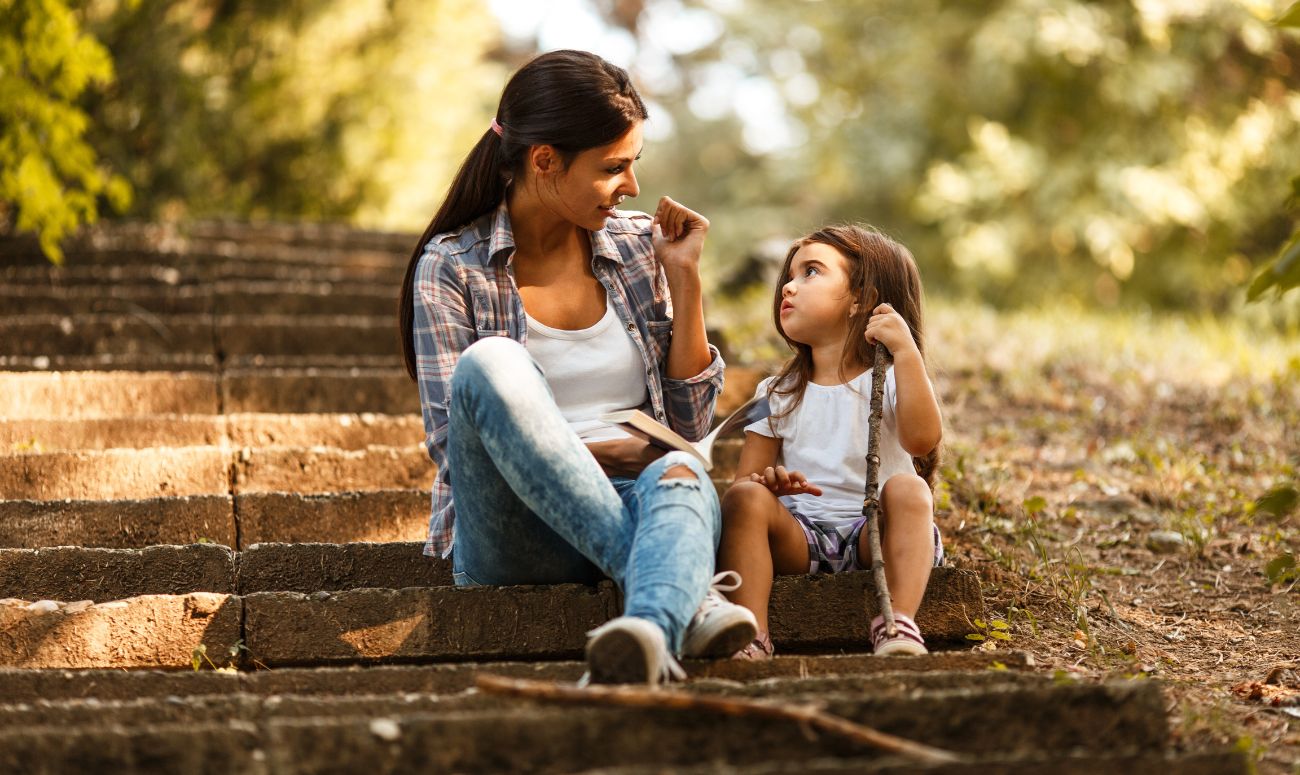Parenting might seem absurdly difficult. It’s so demanding that the pressure simply exhausts both the mind and body. As a parent, you might behave in a way that is not consistent with your genuine nature. Two of the various emotions that are frequently felt are worry and fear. Given how stressful and overwhelming parenting can be, the idea of incorporating mindfulness for parents into their hectic schedules may feel unachievable. Finding the right time for meditation might seem a bit difficult, but with the correct mindset, taking just 10 minutes out of your day for meditation can do wonders.
Having a significant number of physical and mental health benefits, meditation can help parents cope with stress, which can further benefit the entire household. Meditation can help parents develop compassion for themselves and learn to judge themselves less harshly.
Must Read: Top 3 Ways For Teaching Mindfulness To Teenagers
10 Ways How Mindfulness Can Help Parents
1. Learn To Be Selflessness
The best way to foster a child’s happiness is to take care of your own needs. Self-care practises like meditation help people become calmer and gentler over time. Through meditation, we can move toward a state of selflessness where we are more concerned with others’ needs than our own.
2. Learn To Be Less Reactive
Every hour, a child’s mood can change, which can be distressing for any parent. Through meditation, you can calm your mind, become less receptive, and manage stressful situations with ease. Practice meditation by lying down on your back, positioning your arms at a 45-degree angle, and breathing deeply for 10–20 minutes. Practicing this pose will help you calm your mind and let go of tension.

3. Let Go Of Control
Being unable to comprehend a child’s demands can be quite stressful for parents. By practising simple meditation techniques, parents can achieve freedom from the idea of constant control over their kids and can help them seek happiness and mindfulness. With housework, a job, and other responsibilities, it’s quite easy to lose track of your partner and your life. Meditation teaches us how to give the things that matter more of our attention, how to feel their needs more deeply, and how to behave with more gratitude.
4. Stay In The Present
You become more aware of your surroundings while you meditate. It can provide you with a sense of mindfulness, with which you can find happiness in simple acts like spending time with your partner or your kids. By practising meditation, you will be able to enter a strong and balanced sequence of your life, which helps you enjoy the present. Lift your chest and roll your shoulders down your back, palms facing forward. Finish by lengthening the crown of your head towards the sky and taking deep breaths.
5. Practice Patience
Through meditation, parents can gradually learn to control their irrational impulses and be more patient with their children. Take a few deep breaths each time you notice yourself losing yourself in your thoughts, then return your focus back to your body by distancing yourself from your unhappy state of mind.

6. Become Emotionally And Mentally Resilient
By engaging in meditation, you can become more resilient to both success and failure when raising children. You’ll be able to make steady progress toward your objectives without being discouraged by setbacks. Becoming resilient is key to being a good parent. Thankfully, meditation is, too, and with some practise, we can make this path of giving up control feel a lot more joyful.
7. Stay Us Physically Healthy
Other than giving off a sense of balance and peace, meditation helps to benefit the overall health of a person by boosting their immune system. A healthy body can help a parent lead a long, healthy life with their kids. Meditation can help to relieve stress, reduce negative thoughts, and manage health.
8. Become Comfortable With Uncertainty
Through meditation, parents can deal with the anxiety and stress surrounding their children’s lives. Anyone can benefit from meditation by learning how to handle any situation calmly and becoming comfortable with ambiguity. It’s easy to feel overwhelmed by the amount of uncertainty. The core of meditation, though, is to learn how to be at peace in ambiguity, and the more we practise it, the more effective we get at doing so.
9. See Reality For What It Is
Parents who meditate are better able to handle reality with objectivity. It can help you bring your mind back to the present moment and make better decisions in other areas of your life. Through meditation, we can learn to accept reality a little bit more and oppose it a little bit less.
10. Learn Not To Project Onto Others
Being a great tool, meditation can support people as they grow and become more mindful. A healthy mindset can help them have healthy relationships with people close to them. It assists in decluttering the mind and dealing with children calmly. Meditation reduces the propensity to project onto others, allowing children to develop a sense of having their own space in the world.
Bottom Line
Parenting at times can be stressful and difficult, but by being mindful, anyone can become more adept at observing their inner experiences, such as their thoughts and feelings, without passing judgment. Being described as paying attention to the present with curiosity, openness, adaptability, and kindness toward oneself and others, mindfulness and meditation can help in moving forward in a way that can help parents understand their values and intentions for raising their children.
Read More: Bookmark These Events On Your Calendar For An Exciting 2023
Like & Follow ThinkRight.me on Facebook, Instagram, Twitter, Pinterest and Telegram to stay connected.






























